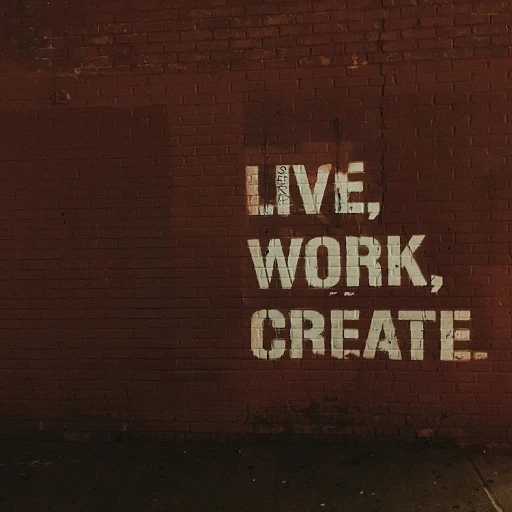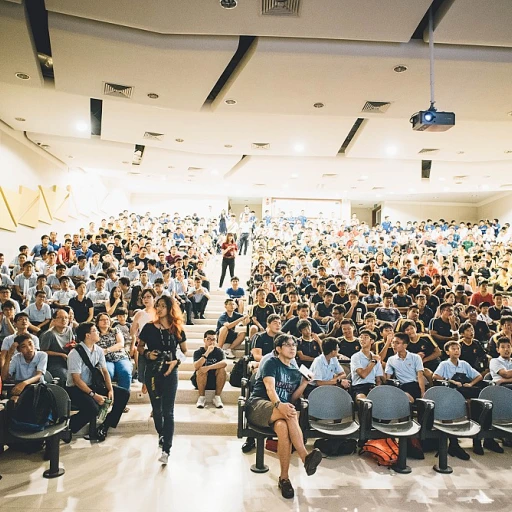Understanding Sensei CRM
What is Sensei CRM?
In the fast-paced world of business, maintaining strong customer relationships is key to success. Sensei CRM is a powerful tool designed to enhance this relationship management by streamlining various aspects of customer interactions through its sophisticated CRM system. It stands out in the crowded space of customer relationship management solutions for its ease of use and comprehensive features. Whether you're in the building industry, selling metal buildings or part of a dynamic sales team, Sensei CRM provides the essential support needed to connect effectively with customers.
Sensei offers an array of customer-focused features that are built to address the unique challenges in sales and marketing. Its workflow automation capabilities help remove repetitive tasks, allowing your team to focus more on building meaningful customer connections. Businesses can benefit from Sensei CRM’s streamlined sales and marketing automation, enhancing efficiency and productivity of the sales team.
While exploring CRM options, it's important to think about how a system like Sensei can integrate into your current processes. It’s a tool for businesses looking to refine their CRM management, offering the flexibility to adapt to various industries. Due to its robust features and intuitive design, it’s a great choice for businesses aiming to improve their current CRM and maximize their efficiency.
For more insights on maximizing savings in your business strategies, check out this helpful post. It might offer additional guidance on resource management and best practice implementations.
Key Features of Sensei CRM
Exploring the Notable Features of Sensei CRM
Sensei CRM stands out in the crowded CRM landscape with a range of features designed to enhance business operations and customer relationships. This crm software is adept at integrating key sales and marketing functions, catering to diverse industries including the metal building sector.
Workflows and automation are at the core of Sensei CRM, ensuring that your sales team can operate with maximum efficiency. By automating repetitive tasks, the platform allows your team to focus on what truly matters: nurturing customer relationships and closing deals. The streamlined crm system offers a variety of modules that cover sales crm, marketing automation, and relationship management, ensuring a well-rounded approach.
- Integration: Seamlessly connect with third-party systems and applications, such as HubSpot CRM, to ensure data consistency across platforms.
- Customization: Tailor the CRM to fit your unique business needs, whether you're in the building industry or another sector.
- Customer Support: Robust support mechanisms make it easier for businesses to tackle queries and issues, enhancing customer service significantly.
- Reporting and Analytics: Gain insights into CRM customer data, empowering you with actionable intelligence for decision-making.
For businesses eager to maximize efficiency, investing in powerful software like Sensei CRM can revolutionize their operations. The platform not only supports improved customer service strategies but also offers comprehensive management tools that are essential in today's competitive market. For insights into optimizing business processes further, consider exploring advanced scheduling tools and strategies that complement CRM functionalities.
Implementing Sensei CRM in Your Business
Integrating Sensei CRM into Your Business Strategy
Implementing Sensei CRM into your business is more than just adopting a piece of software; it’s about revolutionizing how you manage your customer relationships and streamline your operations. The journey to maximizing the benefits of Sensei CRM starts with understanding its capacity to connect all aspects of your business operations effectively. Start by assessing your current customer relationship management processes and identifying areas where Sensei CRM can drive improvement. Its extensive range of features, from sales CRM capabilities to marketing automation, offers a comprehensive solution for businesses of all sizes, including those in niche markets like the building industry. Consider leveraging Sensei CRM's workflow automation tools to simplify repetitive tasks. This can free up significant time for your sales team, allowing them to focus more on building meaningful relationships with customers. Integration with existing platforms like HubSpot CRM or your website can further enhance data management capabilities, ensuring that your team has access to real-time customer information. Training your team on Sensei CRM’s usage is crucial. This involves ensuring that every member understands how to utilize its features effectively, from lead management to customer support functions. Create a structured implementation plan that incorporates continuous learning and adaptation to new updates in the software. To get the most out of Sensei CRM, regularly revisit your strategy and adjust it according to the evolving needs of your business. Emphasizing adaptive customer service practices, particularly in specialized markets such as metal buildings or sales industries, can significantly benefit from the detailed insights that Sensei provides. For businesses exploring cost-efficient strategies in adopting CRM systems, visiting the right resources can offer vital insights. Understanding the costs involved with services like headhunter resources in work tech can provide valuable context in making informed decisions. By strategically implementing Sensei CRM and continuously optimizing your workflow processes, your business can effectively enhance customer satisfaction and operational efficiency, aiming for sustained growth and competitiveness in the market.Maximizing Efficiency with Sensei CRM
Optimizing Process Flows for Success
Maximizing efficiency with Sensei CRM involves integrating the system into the daily operations of your business. This CRM software is designed to seamlessly manage customer relationships, track sales opportunities, and streamline marketing efforts, ensuring you maintain a robust and responsive customer service approach. Start by leveraging Sensei CRM's advanced features such as workflow automation, which can significantly reduce manual tasks and enhance team productivity. This automation allows your sales team to focus more on building relationships and less on administrative duties. In addition, Sensei CRM's integration capabilities enable it to connect with other business tools, ensuring a more cohesive workflow across different departments. Whether you're in the building industry dealing with metal buildings or engaged in marketing automation campaigns, this CRM solution adapts to your specific business needs. Inventory and task management can also benefit greatly from the features offered by Sensei CRM. By using real-time data and analytics, businesses can make informed decisions, improving overall efficiency and response time. Furthermore, the system's customization options allow for personalized dashboards, providing essential insights tailored to your sales team, enhancing strategic planning and execution. For those comparing options, Sensei CRM offers competitive benefits similar to, or exceeding those of CRM giants like HubSpot. This strategic investment supports business growth by managing leads effectively and enhancing customer satisfaction through well-organized efforts. Achieving maximum efficiency with Sensei CRM isn't just about the software itself, but about how it's implemented and utilized within your existing processes. For marketing strategies and sales CRM enhancements, understanding how to integrate these tools is crucial for success in relationship management.Comparing Sensei CRM with Other CRM Solutions
Comparative Insights and System Differentiation
When it comes to customer relationship management tools, the market presents a plethora of options. Sensei CRM stands out with its unique blend of features and capabilities tailored to specific industry needs, such as the metal buildings sector. By analyzing how Sensei CRM compares with other major CRM solutions, businesses can make informed decisions about integrating these systems into their workflow.
Sensei CRM offers a robust sales and relationship management platform that efficiently connects marketing and sales teams. Unlike competitors like HubSpot CRM, which focus heavily on marketing automation and broader customer service solutions, Sensei CRM is designed to provide deep customer insights specifically catered to the building industry.
- Customizability: Sensei CRM is built to support businesses that require a more tailored approach in managing customer data compared to generic options.
- Industry Alignment: Particularly beneficial for those in metal buildings and construction, Sensei CRM includes features that help streamline partnership and project management.
- Integration and Support: Designed to integrate seamlessly with existing workflow automation and sales hub tools.
While both HubSpot CRM and Sensei CRM offer powerful features, the differentiation lies in their core focus and adaptable technology management. For businesses looking to deepen their customer relationships and connect with sales targets effectively, Sensei CRM can offer superior strategic advantages.








